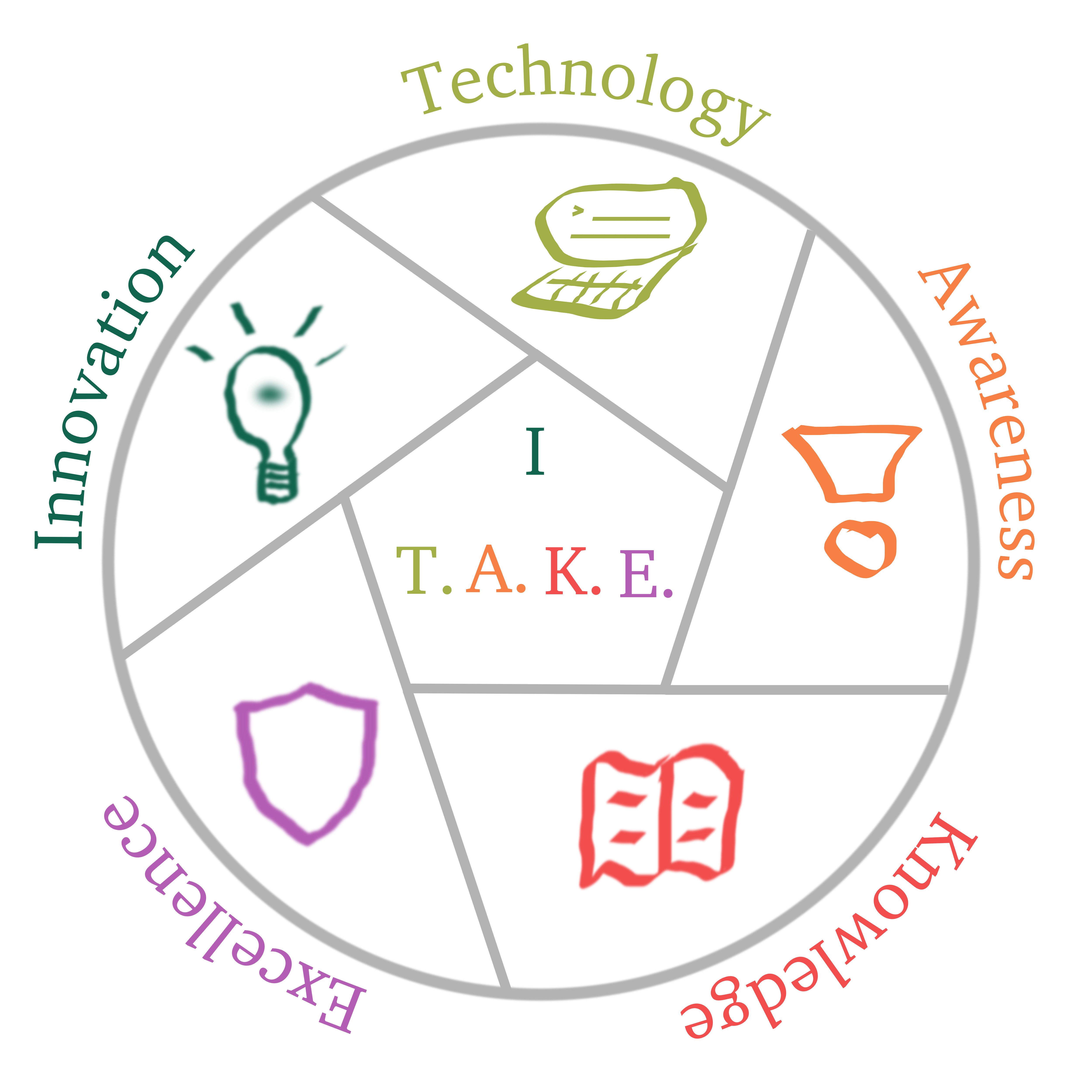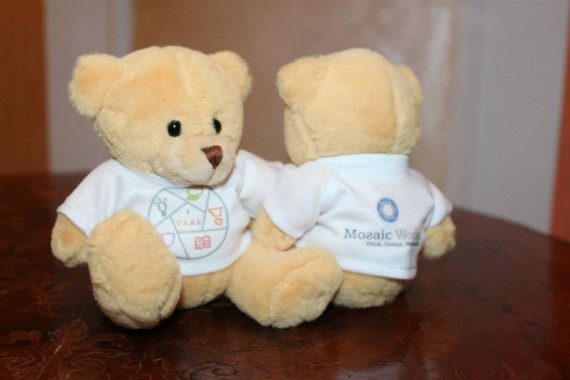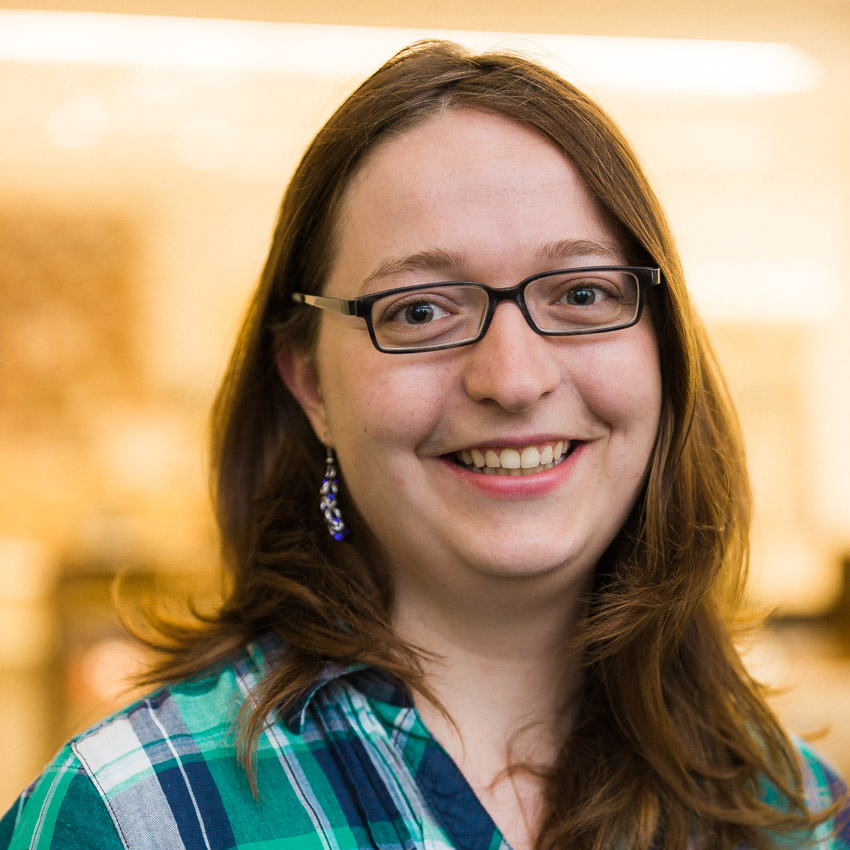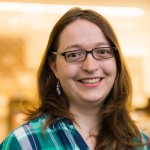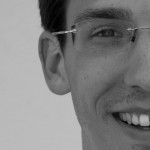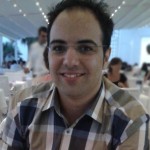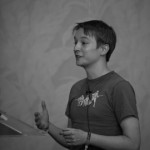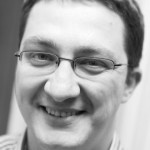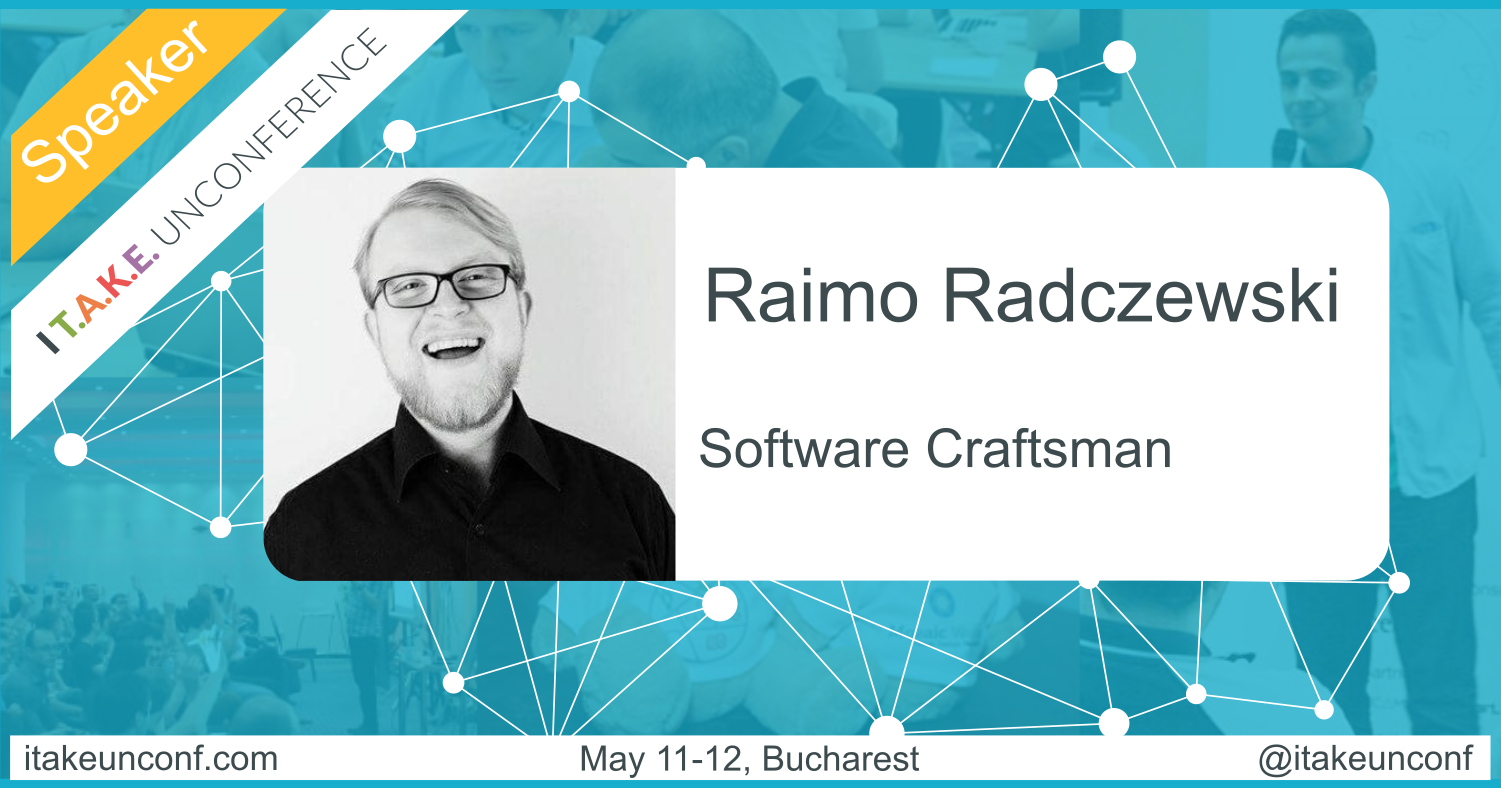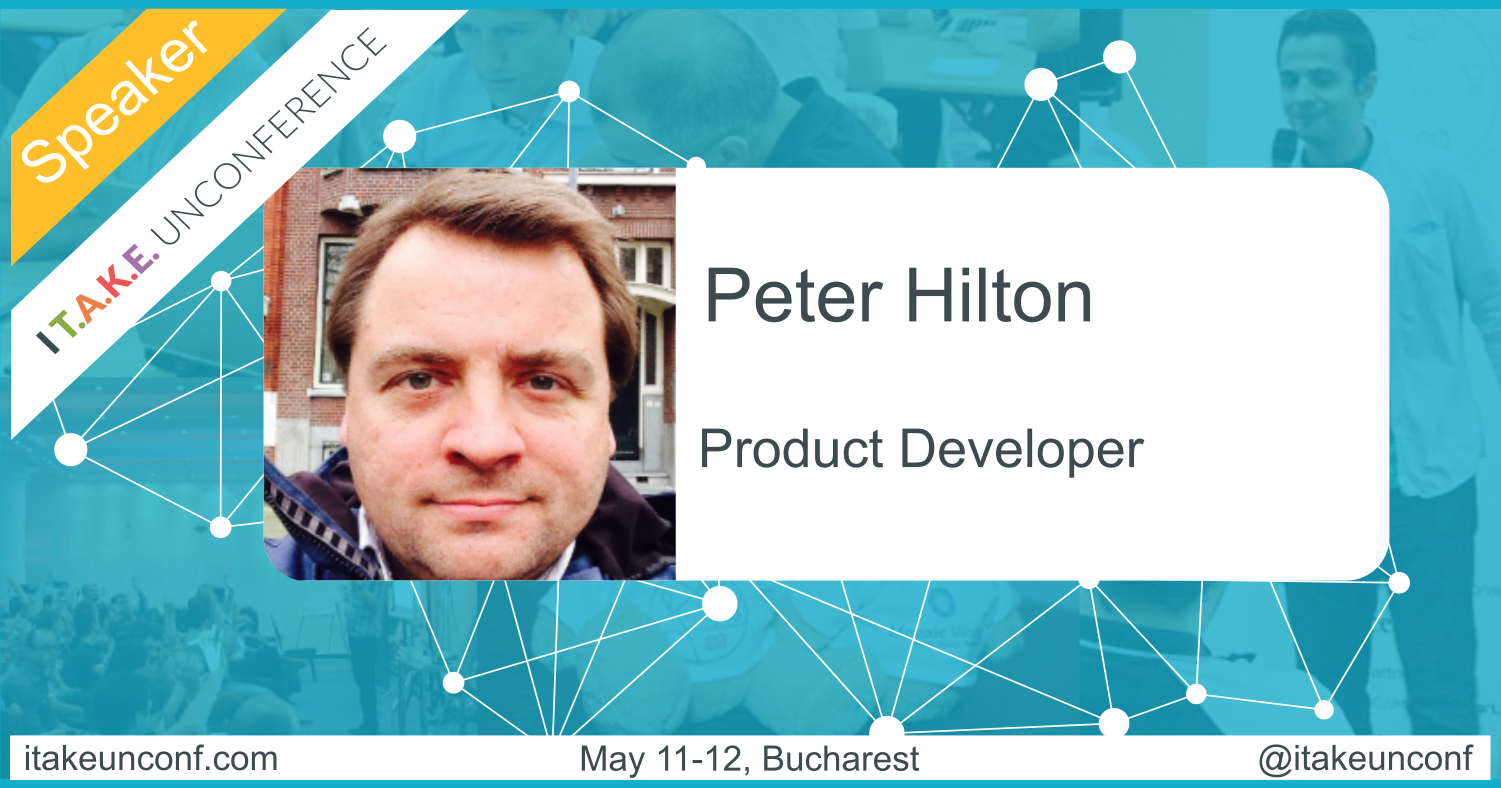
Enjoy the following series of interviews with the speakers, top-notch software crafters from across Europe, joining I T.A.K.E Unconference, Bucharest, 11-12 May. Discover the lessons learned and what drives them to challenge the known path in their field.
Peter Hilton is a software developer, writer, speaker, trainer, and musician. Peter’s professional interests are business process management, web application development, functional design, agile software development, and documentation. He will present at #itakeunconf a session about documentation for software developers.
#1. Please share with us 5 things you did that helped you grow & become the professional you are today
The things that helped me grow the most were starting to do something that I later developed a lot further: travel, presenting, writing, management, and coding. These influences on my professional development were taking overseas assignments and later moving permanently to another country, presenting to colleagues and later at conferences, writing a tech blog and later a published book, leading a team and later taking on a management role. As for coding, the most important thing was to never-never give it up and always have something new to learn.
#2. What challenges will the participants find solutions to during your session at I T.A.K.E Unconference 2017?
My workshop will help participants address the hardest challenge in software documentation: learning how to take the first step from no documentation at all to the minimum viable documentation. The hard part is understanding what you can do, without wasting time on too much documentation.
#3. Recommend for the participants 3 sources you find inspiration from and would help them better understand you
iMy passion is figuring how to explain software and make it maintainable. I was originally inspired to learn more about this after reading Steve McConnel’s book Code Complete, as well as many other books about software development. I discuss my favourite aspect of making code understandable in my Software Engineering Radio interview on naming things.
I’ve always found talking to other people the best way to develop and refine my own ideas. This inevitably lead to conference presentations, for which my greatest influence is Kevlin Henney’s presentations.
Perhaps my greatest inspiration is the real world, which I enjoy exploring. My favourite way to learn about a new city and immerse myself in it is to explore its cafes, which I started doing on business trips and overseas assignments when I had a hotel room instead of a home to stay in. Writing cafe reviews on my own web site, before the likes of TripAdvisor was invented, was also how I started to explore writing. Today, there’s still probably as much writing about cafes as about programming on my own blog.
Want to join Peter and ~300 software crafters from around Europe?
Register now for I T.A.K.E Unconference 2017!
